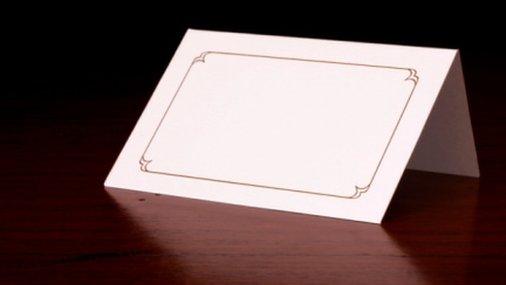Wales namesakes: The country and the Yorkshire village
- Published
The village of Wales has about 7,000 residents
I've passed the sign welcoming me to Wales, but there are a few things which are not quite right - the locals call me duck, there isn't a male voice choir to be heard and I can't find anyone who knows what Welsh cakes are.
Welcome to Wales, a small village and parish nestled in the South Yorkshire countryside.
Located just south of Rotherham, if you've never heard of it, you could be forgiven.
A blink-and-you'll-miss-it drive along the main road and you're already in neighbouring Kiveton Park, part of the Wales parish.
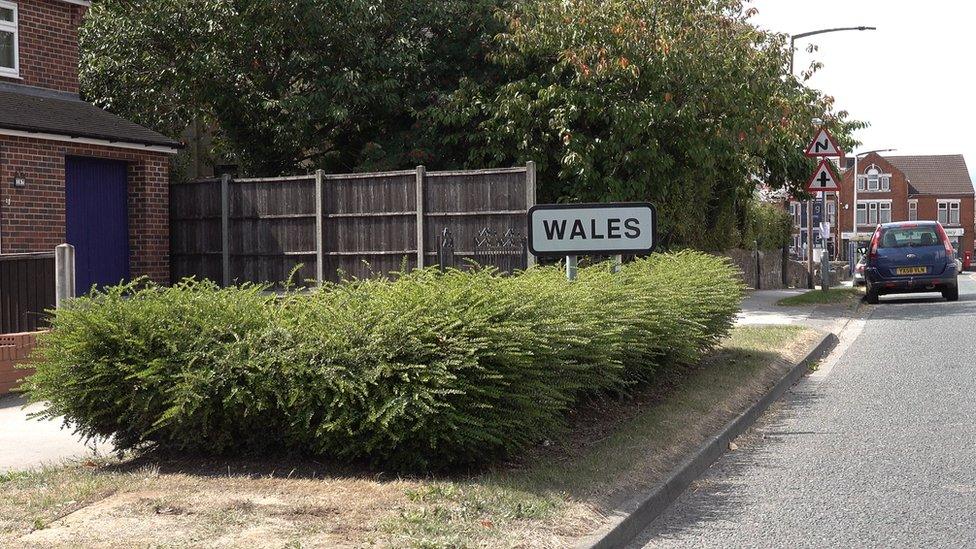
Forget 'croeso', it's a greeting of 'ey up' in this Wales
The parish is home to just over 7,000 people, a church dating back almost 1,000 years, a pub, a garage, two schools and a few shops.
First, a brief personal history: I'm a Yorkshireman who has called (Welsh) Wales home for the past 11 years, so when I found out there was a mini Wales in the motherland, I was curious to find out more.
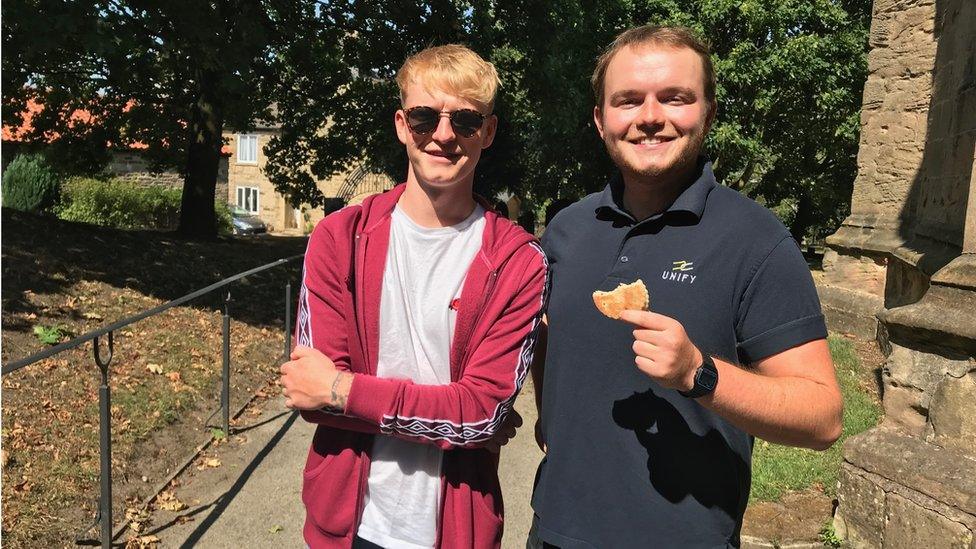
Joe and Dan Schofield get their first taste of a Welsh cake
Do they call themselves Welsh? Are any Welsh people living there? Do they get any confused-looking tourists?
No, no (we couldn't find any) and yes. Once. In a spectacular case of mistaken identity ahead of the Wales v Belgium match in the Euro 2016 qualifiers.
Dan Schofield, 23, who lives in the village, said: "It was a couple of years ago, for the Euros, there was a coach of Belgium fans that came and the driver had just put Wales in the sat-nav and they ended up here when they meant to be in Welsh Wales.
"[My brother] Joe was having a party and one of them knocked on the door and asked for directions, so we said: 'We think you've got the wrong Wales.'"

What's in a name?
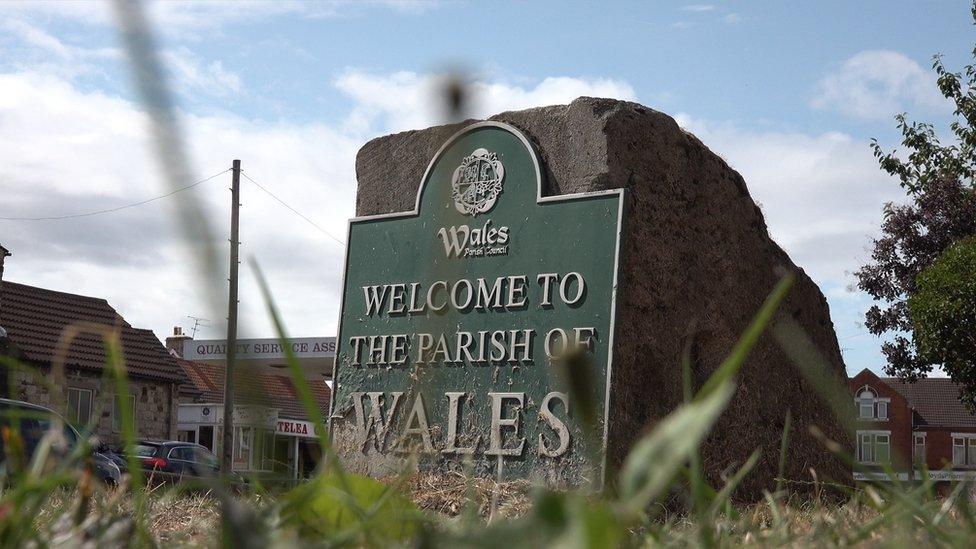
Nice though it may be to think this village's name is a homage to the country of Wales, the origins are rooted in history.
A Norman-style church has stood in the village for almost 1,000 years, but the name predates the Norman invasion of Britain in the 11th Century, external.
The Rev Gary Schofield, the Vicar of Wales, said: "Wales means the land of the stranger, the land of the foreigner. In Saxon times I think the Celts retreated to the high ground and came here to defend themselves, so that's where we've got our name from."
It is also thought the name could come from the word Waelas, meaning field of battle, external.
As well as sharing a name, the two Wales have a similar industrial history.
Wales councillor Dominic Beck said: "We had lots of people from Wales come up to work in the local coal mines in Kiveton Park and Waleswood colliery - there are some ties there even if people don't realise there are."
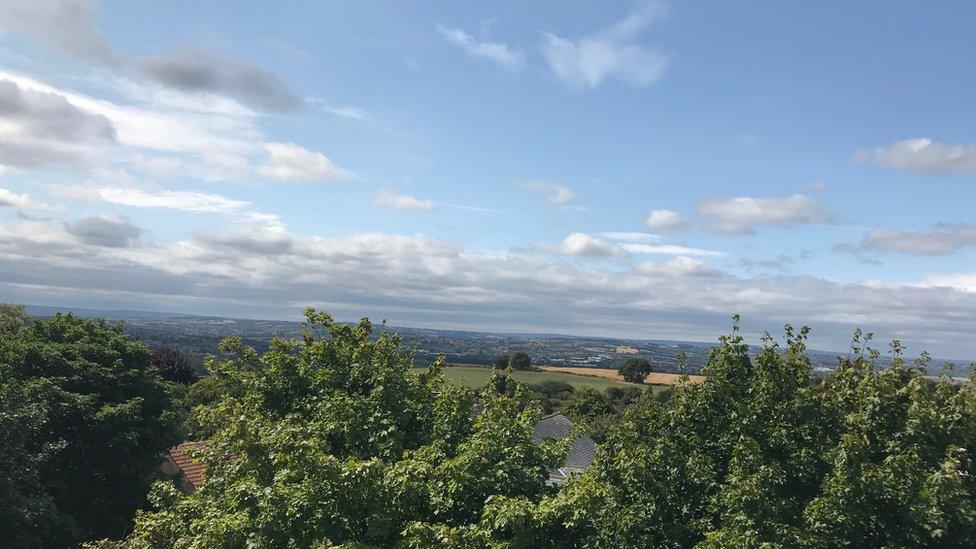
Wales has a Sheffield postcode, comes under Rotherham Metropolitan Borough Council and has a Worksop area code
But the industry's demise mirrored that of pits across the country and the last shift in Kiveton Park Colliery clocked out in September 1994, bringing to an end nearly 130 years of coal production in the area.
Despite its modest size, the parish of Wales has produced a couple of sports stars who reached the peak of their professions.
Its two most famous sons are James Toseland, the 2007 World Superbike champion, and Herbert Chapman, external, Arsenal's legendary manager of the 1920s and 30s, who was seen as a pioneer in the game. Both were raised in Kiveton Park.

Speaking to people in the village and they'll tell you about the raised eyebrows they get when they tell people - in a broad Yorkshire accent - they come from Wales.
But are there any hints of the country in the village?
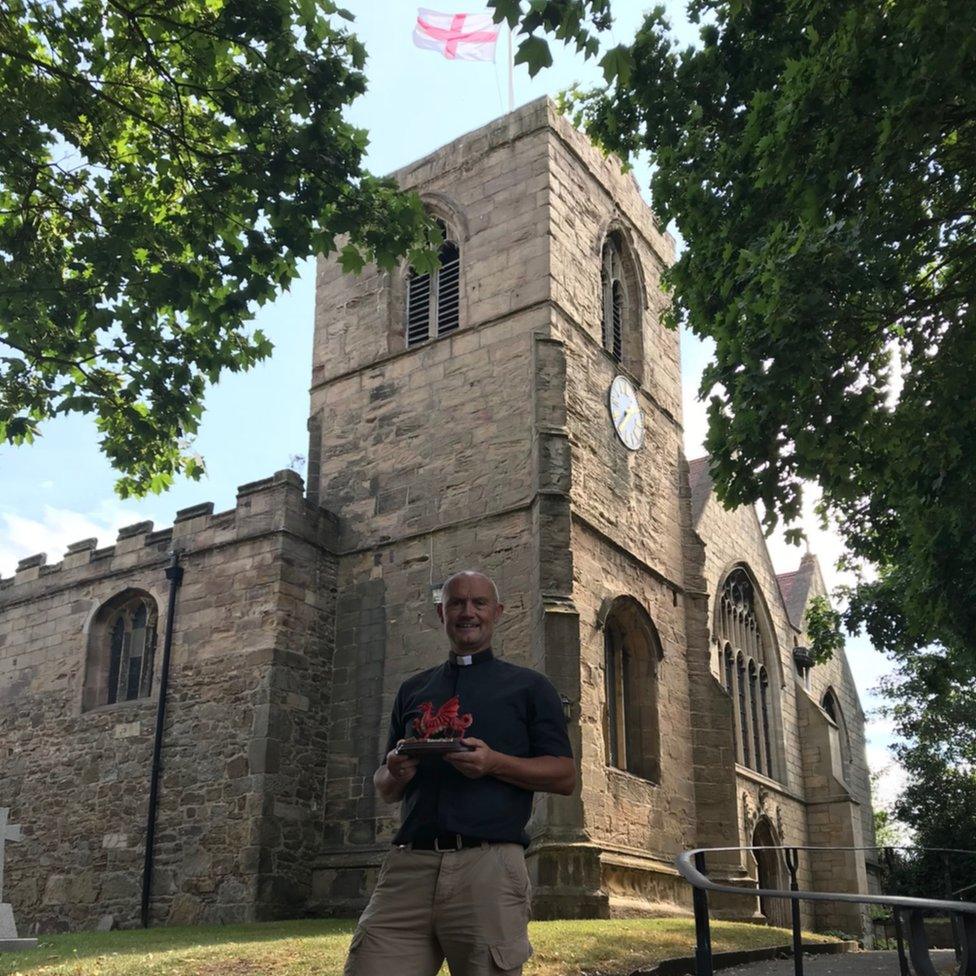
Vicar of Wales Gary Schofield keeps a Welsh memento in his very English church
Our efforts to find any Welsh descendants of those who moved to work in the mines proved fruitless and, just when it looks like there is nothing Welsh in its namesake village, Rev Schofield comes up with the goods.
He pops into his church and comes out from one of the rooms clutching that unmistakeable emblem of Wales: The dragon.
An "amazing" choir from Ynysybwl visited St John The Baptist Church in 2006 and - being generous-spirited Welsh people - presented the church with a gift.
But one of the uses of this statue would send a chill down the spine of any patriotic Welsh person.
"It's quite an aid for St George's Day," says Rev Schofield, a knowing smile spreading across his face.

Wales the village v Wales the country
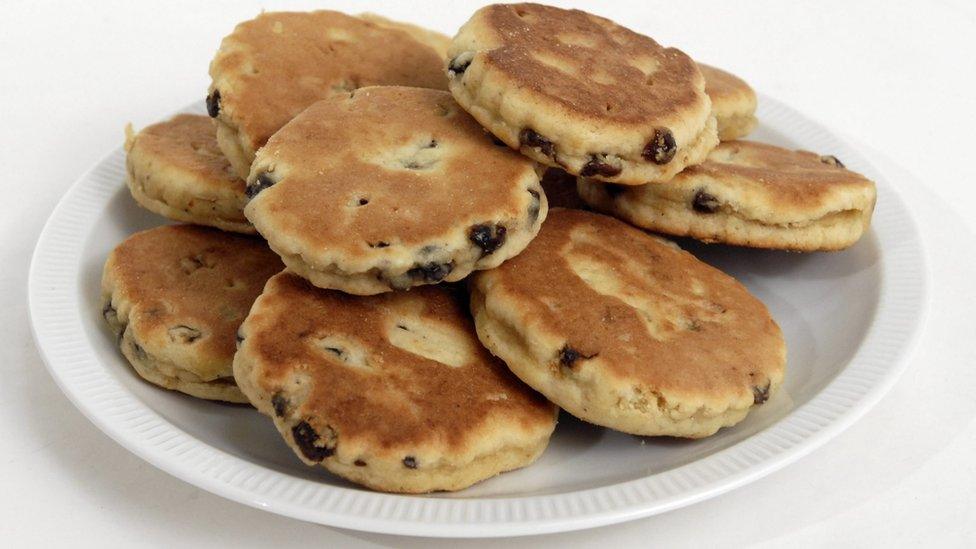
No, they're not scones
Population: 7,069 v 3.063 million
Highest point: Church Street (407ft/124m) v Snowdon (3,559ft/1,085m)
Local delicacy: Henderson's Relish (Sheffield) v Welsh cakes
Representatives: 11 parish councillors (and three borough councillors) v 60 Assembly Members
- Published23 November 2016
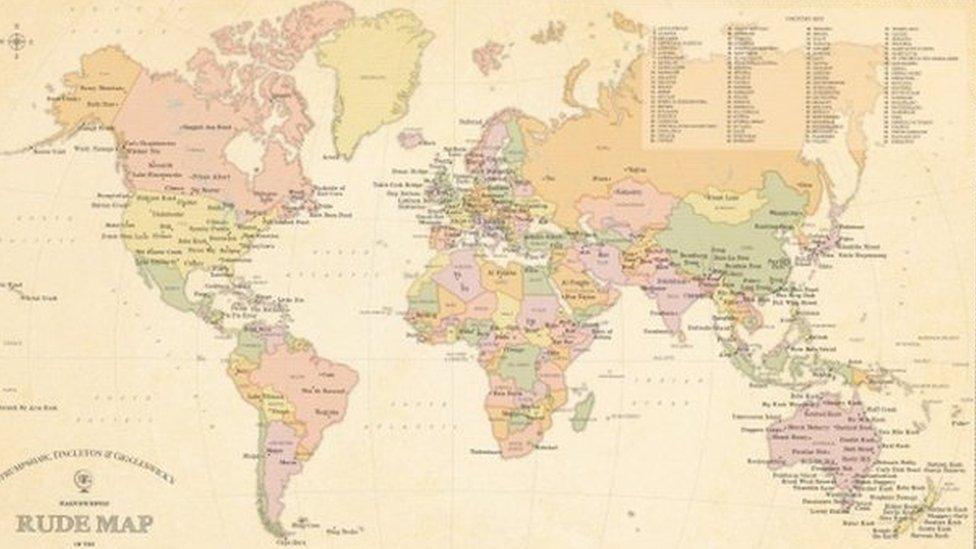
- Published23 September 2016
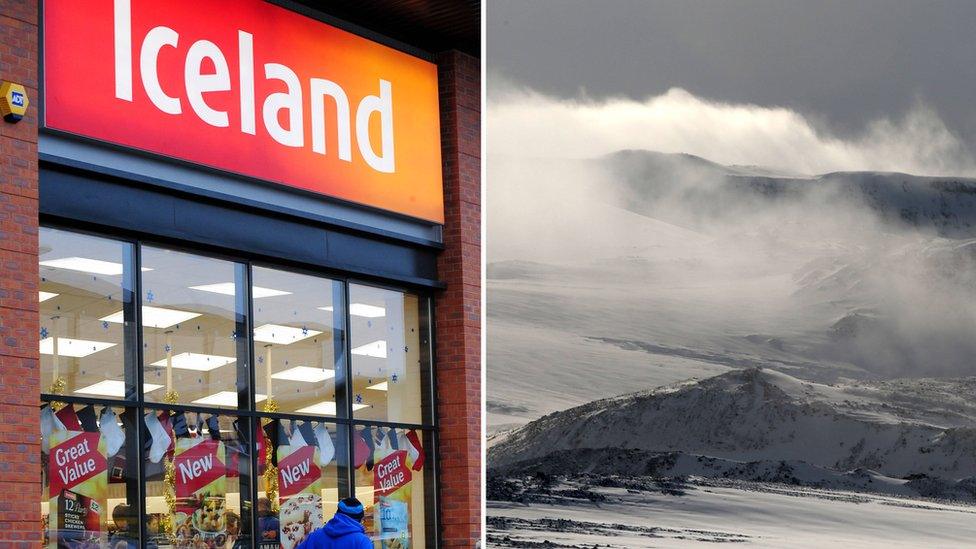
- Published10 July 2012
